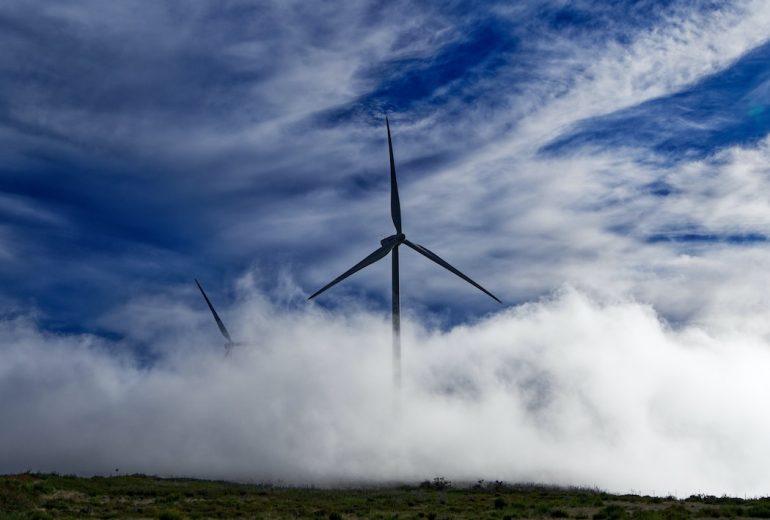On November 3rd, Chrystia Freeland, Deputy Prime Minister and Minister of Finance, released the 2022 Fall Economic Statement. More than any other such mid-year update in recent memory, the sustainability and clean technology communities keenly watched as this statement was delivered. It did not disappoint.
The statement outlined several initiatives that will support Canada’s greener future, including three refundable investment tax credits that will significantly lower the barriers to adoption of clean technologies that require significant capital investment.
These three investment tax credits, one for Carbon Capture, Utilization and Storage, one for Clean Technologies, and one for Clean Hydrogen provide companies with a refundable credit of up to 60 percent, 30 percent, and 40 percent of capital costs, respectively, with various factors that modify those amounts. This means that, like refundable SR&ED tax credits, companies can receive cash back when they file their taxes and claim these tax credits.
Yes, it is worth repeating: the purchaser of these assets gets cash back regardless of their taxable status. This was something that CleanTech North, the Canada Cleantech Alliance and its members advocated for aggressively, with great support from the Smart Prosperity Institute.
It’s clear that, following the adoption of the Inflation Reduction Act in the United States, the Canadian government saw a need for a competitive clean technology tax credit.
Unlike the SR&ED, which is based on the experimental R&D costs and overhead companies incur, these investment tax credits are generated based on the capital cost of investing in the technologies associated with these areas of cleantech. This is a major shift which should result in clean technologies being rapidly adopted, ideally those developed by Canadian companies. The Investment Tax Credit for Clean Technologies alone is expected to generate $6.7 billion in credits over five years, starting in 2023-24, reducing the cost of adopting clean technology and improving the return on investment for the same.
It is certainly clear that, following the adoption of the Inflation Reduction Act in the United States, the Canadian government saw a need for a competitive clean technology tax credit to help level the playing field.
Many will point out that an announcement is a long way from a structured, implemented, and functional tax credit program. They would be entirely correct to say so, as there is no shortage of examples of policy announcements that do not materialize, or if they do, do so in a way that limits their impact and effectiveness.
With the competitive pressure of the US Inflation Reduction Act at play combined with the increasingly present impacts of climate change in Canada and around the world, the Canada CleanTech Alliance, CleanTech North and the Ontario Clean Technology Industry Association all expect these programs to be implemented quickly.
The Carbon Capture, Utilization and Storage credit program is the most advanced, with draft legislative proposals for the Income Tax Act having been made already. As for the credit for Clean Technologies and Clean Hydrogen, these credits are to be available based on eligible investments made as of the day of Budget 2023.
RELATED: CCI laments lack of detail on SR&ED, innovation agency as feds share economic update
What does that mean for cleantech companies and those that may purchase their technologies to mitigate their carbon footprint? It means that the next few months will be critical and cleantech companies will need to monitor the legislative changes closely. The nature of the legislation could impact the business models of companies and we may see the rise of ‘Cleantech Hardware-as-a-Service’. We will also likely see cleantech companies going to great lengths to shore up their financial position, working with partners like RBCx and Venbridge that can help soothe the cash flow pain created by tax credits and addressing working capital needs, in similar ways that they do with SR&ED and other programs. We will also likely see companies working to strengthen their supply chains to ensure that they can meet the expected demand that these investment tax credits could create.
Whatever the case may be, with these credits announced, Canada has taken a step in the right direction, toward our cleaner, greener future.
Do we have all of the policies we need to help us achieve our net zero targets and see Canadian cleantech companies deliver their excellent solutions? No, there is a long way to go. The Inflation Reduction Act has lots of production tax credits to reward the production of clean technologies in the US. If we want our Canadian companies to fully leverage the economic development opportunities of this transition we will need to level the field further for this and other initiatives. This is, however, a first step—one of many more that must follow—to enable the production and adoption of clean technologies to mitigate the disastrous consequences of climate change.
Bryan Watson—Bryan Watson is a Managing Director of CleanTech North, Founding Director of the Ontario Clean Technology Industry Association and SVP at Venbridge. He is also involved in angel investment and venture capital, finance, SR&ED, eSports and more.
Peter McArthur—Peter is VP & National Cleantech Lead at RBCx, where he works with a team of cleantech specialists coast to coast in Canada helping cleantech companies of all sizes to grow and scale. The opinions expressed herein are personal and may not represent the opinion of RBC. Peter is also the founding Chair of the Ontario Clean Technology Industry Association and a board member of the Canada Cleantech Alliance.
Feature image courtesy Unsplash.


